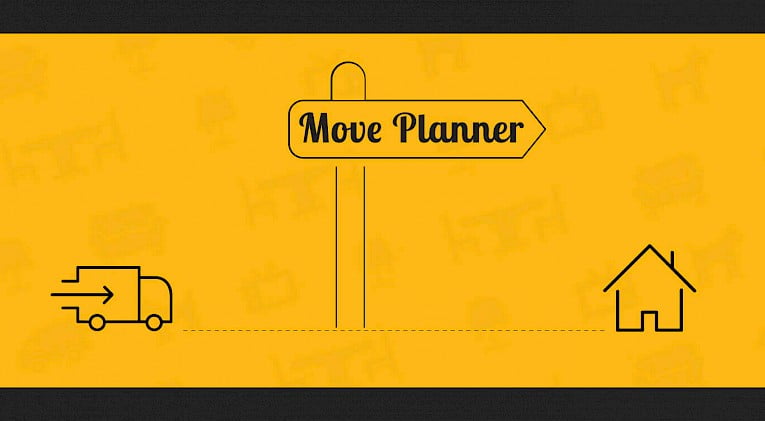Essential Packing and Moving Supplies You’ll Need: Complete Checklist
Moving can be a daunting task, but having the right supplies at your fingertips can make the process much smoother. Whether you’re relocating across town or across the country, it’s crucial to be well-prepared. Here’s a comprehensive guide to the essential packing and moving supplies you’ll need to ensure your move goes off without a hitch.

Boxes
Boxes are the foundation of any move, and you’ll need a variety of sizes to accommodate everything from books to clothing. While it’s tempting to grab any old box you find, investing in sturdy moving boxes ensures your belongings are well-protected. Opt for smaller boxes for heavier items like books and reserve the larger ones for lighter items like bedding or clothes. Speciality boxes, such as those designed for dishes or flat-screen TVs, can also be a lifesaver.
How Many Boxes Will You Need for Your Move?
The number of boxes you’ll need varies depending on the size of your home and the amount of stuff you have. It’s better to overestimate and have a few extra boxes than to run out on moving day. If you’re unsure, many moving companies offer moving supply kits tailored to different household sizes, which can simplify your preparation.
Estimated Number of Boxes Needed by Household Size
Here’s a general guide to how many boxes you might need based on the size of your home:
- Studio Apartment
- Small (16 x 10 x 10): 6
- Medium (18 x 14 x 12): 12
- Large (20 x 20 x 15): 2
- Total: 20 boxes
- 1-Bedroom Apartment
- Small (16 x 10 x 10): 8
- Medium (18 x 14 x 12): 20
- Large (20 x 20 x 15): 4
- Total: 32 boxes
- 2-Bedroom Apartment
- Small (16 x 10 x 10): 14
- Medium (18 x 14 x 12): 30
- Large (20 x 20 x 15): 6
- Total: 50 boxes
- 3-Bedroom House (With Garage)
- Small (16 x 10 x 10): 26
- Medium (18 x 14 x 12): 54
- Large (20 x 20 x 15): 12
- Total: 92 boxes
- 4-Bedroom House (With Garage)
- Small (16 x 10 x 10): 40
- Medium (18 x 14 x 12): 70
- Large (20 x 20 x 15): 16
- Total: 126 boxes

Packing Paper and Bubble Cushioning Roll
Packing paper and bubble cushioning rolls essential for wrapping fragile items. If you’re on a tight budget, reuse old newspapers, clothing, or linens to cushion your belongings. However, be mindful that some items, like dishes or glassware, benefit from the extra protection that bubble cushioning provides.
Extra Rolls of Packing Tape
You’ll likely need more packing tape than you anticipate. Invest in high-quality tape to avoid the frustration of boxes popping open during the move. Cheap tape might seem like a good deal, but you’ll end up using more of it, and it won’t be as effective.
Scissors
A sturdy pair of scissors is indispensable during a move. Whether you’re cutting tape, trimming packing materials, or resizing a box, a good pair of scissors will save you time and effort. Keep them handy, as you’ll be reaching for them often.
Box Cutter or Utility Knife
A box cutter or utility knife is one of those items you might think you can skip, but it’s incredibly useful for quickly and cleanly opening boxes or cutting through tough materials like zip ties. It’s also a lifesaver when it comes to breaking down boxes after the move.

Painter’s Tape
Painter’s tape is versatile and gentle on surfaces, making it ideal for a variety of tasks during a move. Use it to label boxes, secure loose items, or even mark off areas in your new home where specific items should go. It’s also great for keeping furniture drawers closed during transport.
Pen and Paper
Going old-school with pen and paper can be surprisingly effective during a move. Use them to create an inventory list, jot down box contents, and keep track of important details. It’s also handy for labeling boxes, especially if you run out of stickers or markers.
Heavy-Duty or Flexible Trash Bags
Trash bags aren’t just for trash during a move. They’re great for packing soft items like clothes, linens, and pillows. Plus, they’re easy to transport and can be used for last-minute packing when you run out of boxes.
Thick Marker
A thick marker is essential for labeling your boxes. Choose one that’s bold enough to read from a distance, and make sure it’s permanent so the labels don’t smudge or fade. Clearly labeled boxes will make unpacking much easier.
Labels and Colored Stickers
Labels and colored stickers can help keep your move organized, especially if you’re dealing with multiple rooms or containers. Color-coding your boxes by room or category will streamline the unloading process and save you time on the other end.

Moving Supplies List for Moving Day
The day of the move can be hectic, but with the right supplies on hand, you can minimize stress and keep things running smoothly. Below is a list of essential moving supplies you’ll need to ensure a seamless moving day.
Moving Blankets
Moving blankets are a must-have for protecting your furniture and other large items during transport. They’re thick enough to prevent scratches and dents, and you can also use them to slide heavy items across the floor without damaging it. Simply place the blanket under the item and pull it to move without straining your back or risking damage to your floors.
Stretch Wrap
Stretch wrap, also known as shrink wrap, is essential for protecting upholstered, wood, and metal furniture from dirt, dust, and damage. It’s also great for bundling items together, such as keeping drawers in place or securing loose parts. If you’re hiring movers, check if they provide stretch wrap as part of their service, but it’s always good to have extra on hand.
Mattress Bag
A mattress bag is a simple yet effective way to keep your mattress clean during a move. Even if you’re only moving across town, it’s worth the small investment to protect one of the most expensive and personal items in your home. Mattress bags prevent dirt, dust, and moisture from getting onto your mattress, ensuring it stays fresh and clean.
Ratchet Straps or Rope
To keep your belongings secure in a moving truck or container, you’ll need ratchet straps or rope. These are essential for tying down large items like furniture and appliances, preventing them from shifting during transit. Properly securing your load with ratchet straps or rope not only protects your belongings but also ensures safety during the move.
Disc Lock
If you’re using a moving truck or storage container, a disc lock is one of the best ways to secure your belongings. Disc locks are highly resistant to cutting and tampering, providing an extra layer of security. Make sure to keep the key in a safe place, so it’s easily accessible when you reach your destination.
Add Writer Relocation to Your Moving Supplies List
Writer Relocation offers more than just moving supplies and services; they can connect you with the right professionals to make your move as smooth as possible. Whether you need expert help packing up your kitchen or someone to handle the heavy lifting, they’ve got you covered. Their network of trusted partners ensures that your belongings are packed and loaded with care, giving you peace of mind during the entire moving process.
Ready to start gathering your supplies and planning your move? For more tips on saving time, money, and stress, check out the helpful resources available on the Writer Relocation blog.












